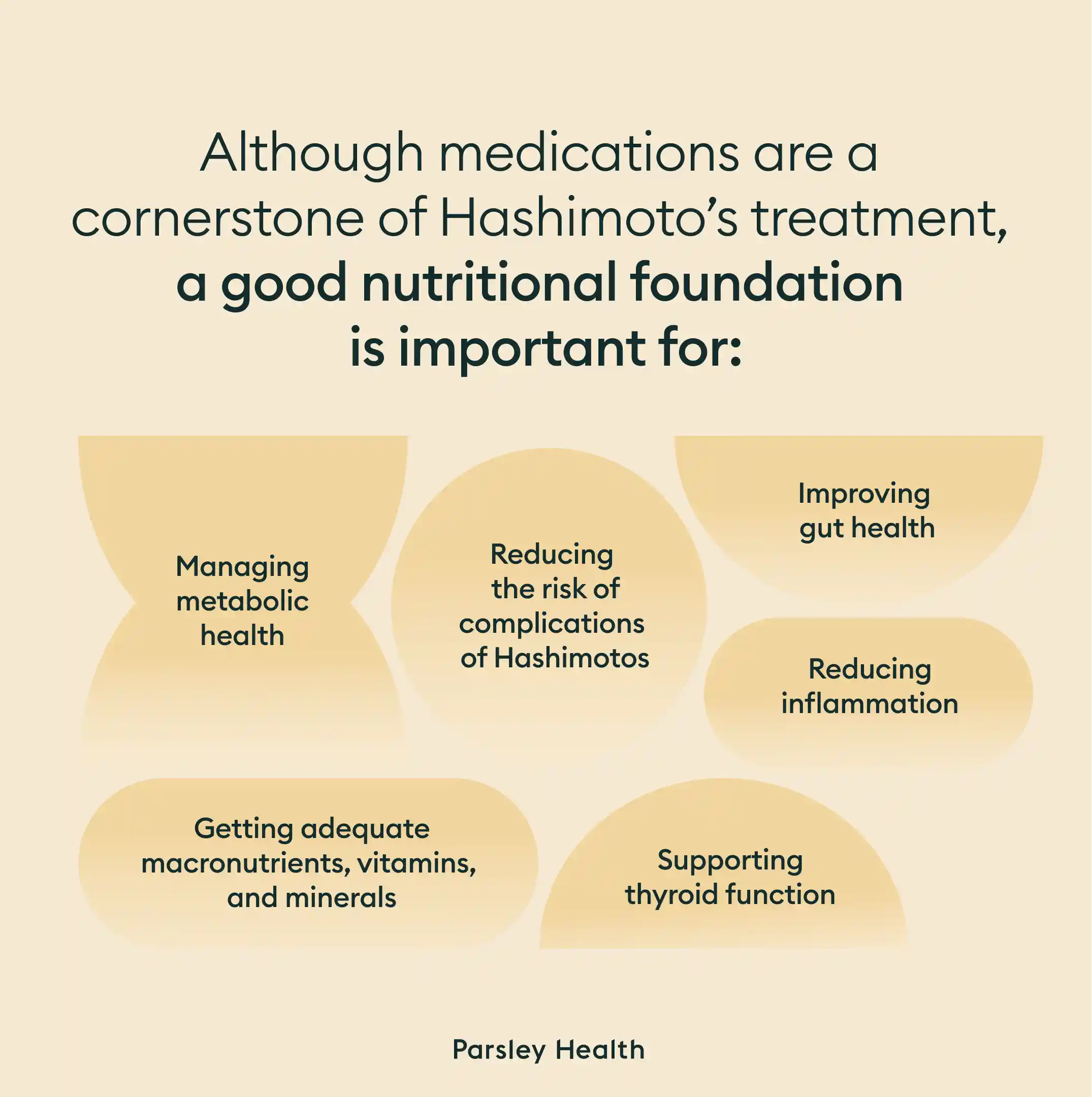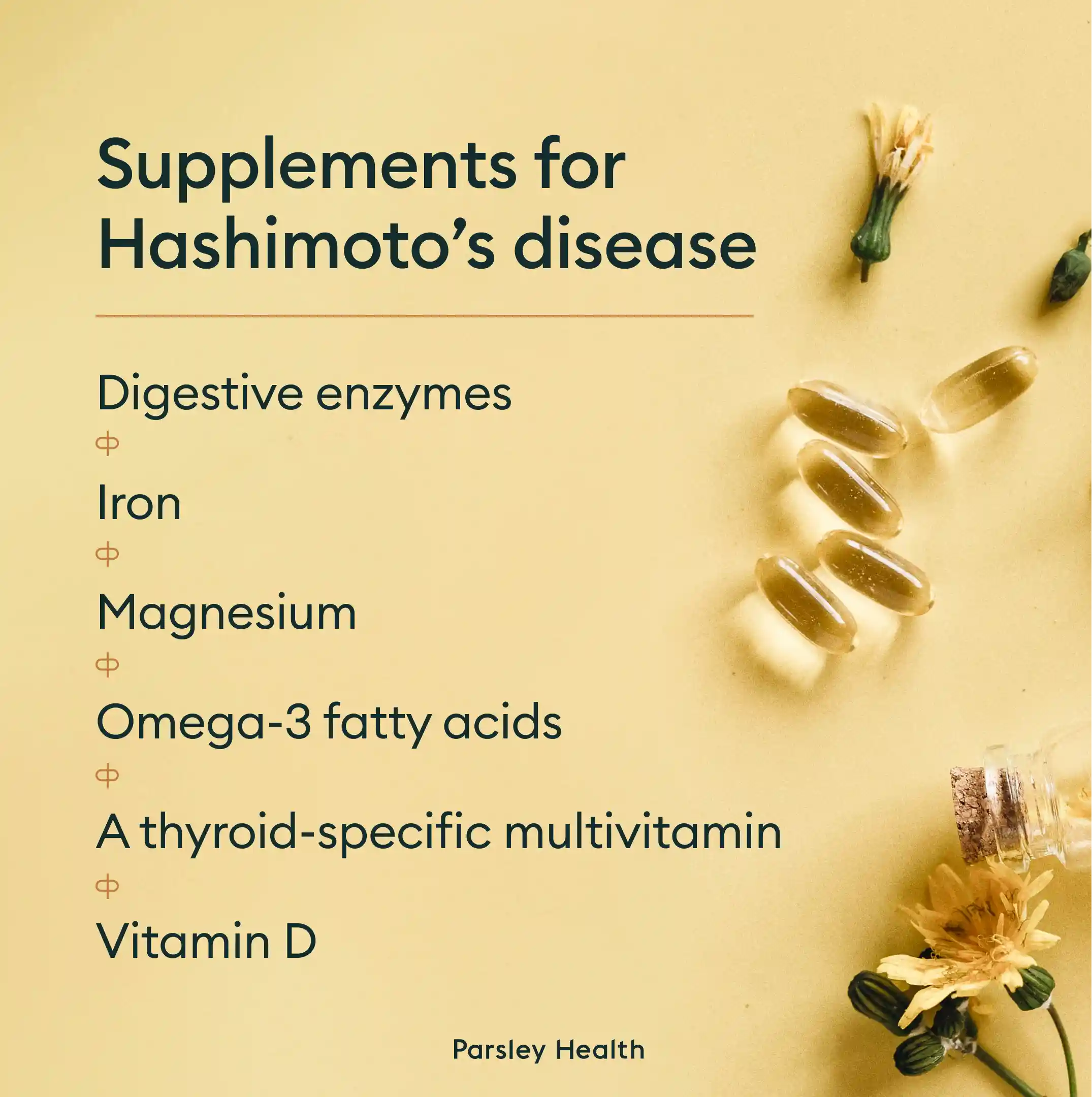Do you wear a sweatshirt even when other people are outside in T-shirts? Do you find yourself dragging your feet through your day? And why is there so much hair coming off on your hairbrush? These are all signs of Hashimoto’s thyroiditis, an autoimmune condition that is the most common cause of hypothyroidism in the United States. Treatment involves medication management—but lifestyle factors, including your diet, also affect your thyroid health and function.
If you’re interested in learning more about Hashimoto’s and what you should or shouldn’t eat to help calm symptoms (including whether gluten-free is the answer), keep reading. We have guidance to help you feel empowered in managing this condition.
Understanding Hashimoto’s disease and thyroid function
Your thyroid is a butterfly-shaped gland at the base of your neck. Its function is to churn out thyroid hormones, which circulate in your blood to regulate your metabolism. In turn, this affects your body temperature regulation, heart rate, food and energy metabolism, and your nervous system.
Ideally, your thyroid keeps zipping along, releasing the right amount—not too much, not too little—of thyroid hormone. But, like all tissues in the body, the thyroid can be damaged. In the case of Hashimoto’s disease, it’s the body’s own immune system that attacks the thyroid, typically causing hypothyroidism, or an underactive thyroid, according to the National Institute of Diabetes and Digestive and Kidney Diseases (NIDDK).
As a result of a sputtering thyroid, your body’s metabolism runs slower, which can cause a slowing down in systems all over your body. You may gain a little bit of weight, struggle to poop on a regular schedule, and your favorite moisturizer may not cut it anymore. Here’s a closer look at the symptoms of Hashimoto's, per the NIDDK:
- Cold intolerance
- Constipation
- Dry skin
- Fatigue
- Fertility problems. (Nearly half of women with Hashimoto’s were found to have infertility, according to prior research.)
- Irregular menstrual cycle and other menstrual changes
- Joint and muscle pain
- Slower heart rate
- Thinning hair
- Weight gain
In terms of how or why Hashimoto’s develops, doctors can’t predict when it will happen. Given it is an autoimmune condition, you need the combination of genetics and an environmental trigger. Having a family history of Hashimoto’s or a personal history of autoimmune disease, being a female, and aging may increase your risk for the disease.









